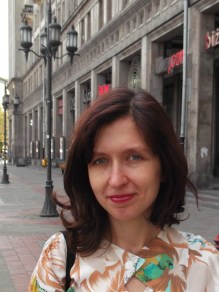Culture Clashes in Europe East and West
Meeting with Agata Pyzik,
author of the latest publication from Zero Books
In discussion with Wendy Bracewell, Federica Mazzara,
Ewa Sidorenko, Dana Dȍmșȍdi
(discussion led by Urszula Chowaniec)
Friday, 16 May 2014, 6-8 pm.
Senior Common Room, 4th floor
UCL School of Slavonic and East European Studies
16 Taviton Street, London WC1H 0BW
Registation
For further details please contact: u.chowaniec@ucl.ac.uk
What’s the East and the West? How do we perceive the East and its transformations? What’s behind post-1989 developments?
Excerpt from the book:
(from the introduction)

AGATA PYZIK
“This book should read like my coming to terms with being from the former East and what it means to me, as well as the discoveriesI made on my way. The typical view of the migrant is that every- thing is better in the new country. For me, a migrant not forced economically, equipped only with cultural capital, I looked at it from the beginning with mixed feelings. In fact, economically the contemporary West has never had so much in common with the East as it does now. Our economies may differ in scale, and though Polish propagandists like to imagine that in the near future they’ll overtake the UK, the British economy is still 70% bigger than the Polish – but in the current critical state they all function more similarly than before. This is the world of post-Fordism, a stream of cheap labor, flowing from one country to another, all equally fucked despite differences. It is perhaps this disgust with what the West did with all its opportunities, political chances, stock and philosophy that motivates this book.
Those years between 1945 and 1989 require a living and lived cultural history, where personal engagement and experience is not a curse, but a value. Many memoirs and accounts have been produced since the dissolution of the Soviet Bloc, and mine wants simply to ask the question – where are we now, after 23 years? If the Soviet Union 23 years into its existence wasn’t called post-tsarist, why are we still defined as “post-communist”, and why is it relevant? Did history take a slower pace, or was it finished, as Fukuyama said, after 1989?”
